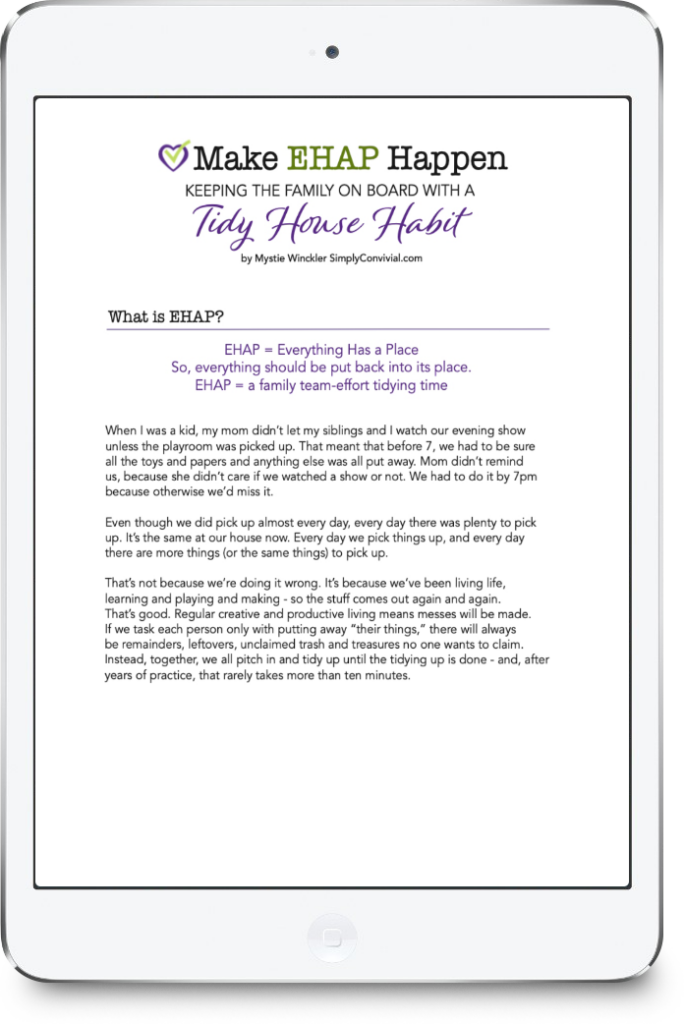
The Best Time Management Tips for Moms
We all know the feeling of getting to the end of the day and wondering where our time went. What did we do? What happened?
We think that the right planner or a better plan will be the key to getting more out of our time.
More than a better plan, however, we need a better perspective.
What to do when you don’t have enough time
If you feel like you don’t have enough time to do all the things on your list, then you’re right. Nothing is wrong with you. It’s simply true. We don’t have enough time to do everything we’d like to do.
However, we can’t change and manipulate time. It is ourselves – both our actions and our mindset – we need to change and control.
We need to learn how to make hard, good choices about those things on our list. As Elizabeth Elliot said, there is always time to do the will of God.
We have to get good at making selections from our list and being content with getting done however much we do have time to accomplish. The long list itself isn’t even necessarily a problem. We can keep a long list as a way to keep track of what needs to be done and as a way to keep those thoughts of obligations on paper rather than swirling in our minds.
The problem is thinking that we should be able to get to everything, that our job is to finish our list.
Parenting takes time
It’s so easy to look at the requests of our children as interruptions, or to see their needs as something that we have to get out of the way before we can do the things that are needful.
As mothers, our primary vocation is serving and raising our children. So they are not interruptions. They aren’t getting in the way of our work. They are the work.
So our biggest time management need is not arranging life so that we can accomplish our list, but rather rearranging our mindset so that we pay attention to our life.
We need to recognize that the good work we are doing day by day, whether or not it made it onto our list really is managing our time well.
The definition of good time management isn’t doing all the things on the list; it’s doing what we’re called to do.
“As we’ve been adjusting our timetable for this semester, it’s been super valuable to look over it with my kids since they are now old enough to be able to give some feedback on what works well and what doesn’t–that has helped make a few decisions!
We’re also keeping our chore routine in mind and trying to figure out if it is actually doable within the time allotted or if we’re expecting too much and need to prioritize and cut back a bit. The time budget helps us see what is possible and what isn’t.”
Lauren Scott, mentor-level member of Simply Convivial Continuing Education and writer at KeptandKeeping.com
A tool for managing your time intentionally
Budgeting might not be a fun word, but it is a tool that helps us manage our resources better.
Most of us have attempted to make schedules before and had them blow up in our faces or just fizzle quietly into nothing.
The problem with scheduling is that it assumes a level of control we simply don’t have. We think we will be able to write out when things will happen and have it be so. But with children in the house and responsibilities that include needy people, that simply isn’t the case.
Our most important work cannot be scheduled. So schedules will never work.
“I’m still not great at keeping to a schedule, but one thing that has helped me is not trying to micromanage my time. I think the “budget” concept is helpful with that, because I might budget $800 for the month for groceries, but I’m not going to start trying to break down how much I’m going to spend on milk vs. fruit vs. meat. That would drive me insane. Within that budget I do what works best each week.
“So it’s helpful for me to make bigger blocks of time with general themes (homeschool, to-do list tasks, meal times, etc.) and then fill them in with whatever needs to get done that day than to decide that every day from 3:00-3:30 I’m going to do my housecleaning tasks and then from 3:30-3:45 I’m going to check my work e-mails, because I will never stick with that type of system and I end up giving up on the whole thing.”
Lori Seaman, Simply Convivial Continuing Education member
However, we do need to be aware of our time and intentional with it. A time budget is just such a tool.
“For me, time budgeting has been about becoming aware of what I have to do and making time for it in my week. So now when something comes up in the “wrong” time slot, I am learning to rearrange my time budget schedule so the responsibility that was crowded out is not forgotten, but I have made another time to cover it.”
Mary Shearouse, mentor-level member of Simply Convivial Continuing Education
“Planning for things to take twice the time they ‘should’ makes my time budget more realistic. Otherwise, the diaper changes, messes, dawdling toddler, starving teens, puppy who needs to go out, etc., derail those plans quickly. Some days triple the time is more realistic. And sick days just totally wreck it and send us to a bare minimum plan: Everyone still breathing? We made it!”
Yvonne Newgent, mentor-level member of Simply Convivial Continuing Education
“I make a time budget almost weekly, during my weekly review. Most of the time I have similar schedule, but the exercise helps me keep the important things planned.”
Abby Wahl, mentor-level member of Simply Convivial Continuing Education
“I had a real time budget epiphany the other day: making dinner takes time. It’s a big rock in my day, not a small rock or sand particle I can sprinkle over the other stuff. For whatever reason, I used to block out maybe 4-6 as “dinner prep & to-dos,” thinking that, often dinner prep doesn’t require me to be constantly in the kitchen, but involves putting something in the oven or on the stove and letting it cook for a while, during which time I can go do other things, so therefore I could fit cooking in while I was doing other things. This led, not surprisingly, to our ending up ordering in dinner way too often.
A few weeks ago it occurred to me that actually one of my primary jobs right now is feeding my family. It’s a task that takes actual time, and that making dinner isn’t one of the things I do in the late afternoon, but THE thing I’m doing in the late afternoon.
So I’ve been basically blocking off 4:30-6:00 as “dinner prep” time. I do often end up not working in the kitchen that entire time, but I’m planning my day as if I will be, and we’ve actually managed to not order in for almost 3 weeks! And I’ve enjoyed cooking so much more because I’m not also trying to get other things that need to be done done at the same time.
Lori Seaman, Simply Convivial Continuing Education member

TIME BUDGET TEMPLATE
Give every hour a name.
“I am working on my time budget using Mystie’s time sheet! Everything should have a designated block of time (with extra time tacked in for margin ????). Just like Everything Has A Place (EHAP), Everything Has a Time or There is a Time and Place for Everything (TPE????)!”
Dawn Simpson, mentor-level member of Simply Convivial Continuing Education

Want a Tidier House?
- Get clear where and when your family needs to tidy up.
- Bring the kids on board to take responsibility for tidying more than their own stuff.
- Learn the three steps to make the habit stick for the long haul.
I recently made a weekly time budget from the big picture perspective of a money budget. Let’s say I had $1000 to budget in a month; it would be wise for me to list all the things I WANT to budget for, then start allocating dollars appropriately based on highest priority/necessity on down.
Go from needs to wants, until the dollars are all given a job. That tells me what I can and cannot afford. Take that principle now and apply to the amount of time I have in a week. There are 168 hours. Let’s say I sleep 8 hours a night (9 in a perfect world ????); that means that I have 112 hours left in my week that I’m awake.
If I then take away the activities we’re committed to (church, small group, piano lessons, etc) plus a relatively decent estimate of the basics (cooking, cleaning, eating, hygiene, etc), it shows me just how little time I truly actually have if I want to have any margin at all (which I do!).
This 10,000 foot view approach has helped me realize that (duh) I cannot do all the things!! It’s made me so much more realistic about the time I actually have to “spare””
Aly Silva-Monroy, mentor-level member of Simply Convivial Continuing Education
Improve your own time management skills!













